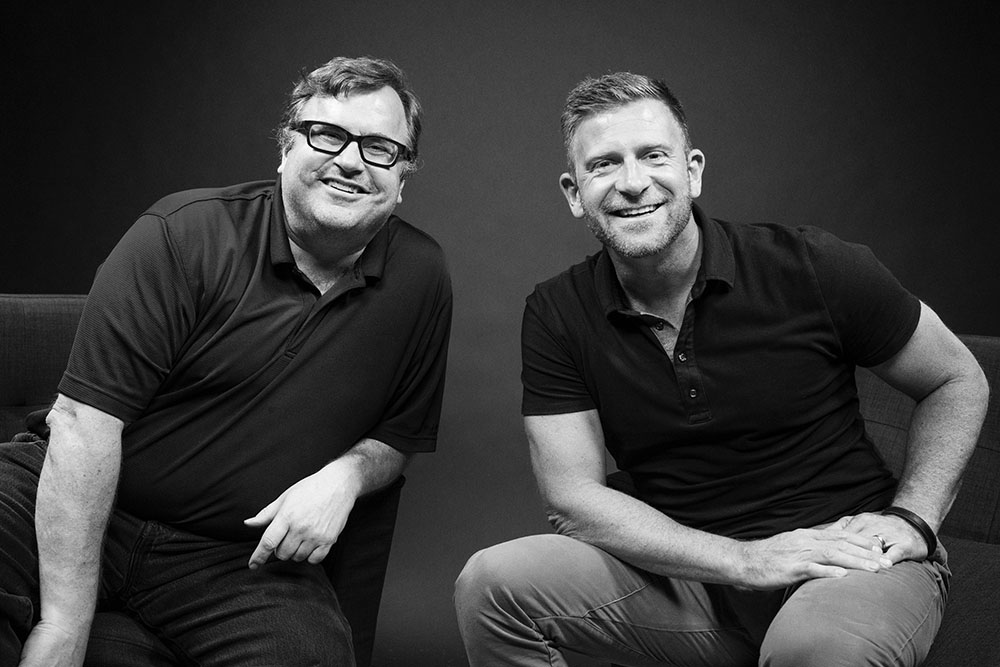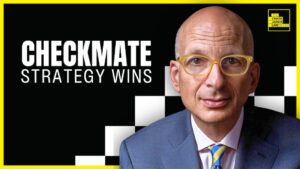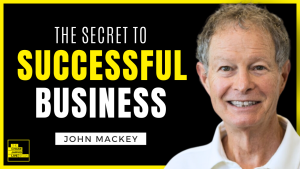
My guest this week is Reid Hoffman. I use the term “legend” very rarely – but in Reid’s case there is simply no more appropriate word for him. He’s one of the most successful and respected entrepreneurs and investors of all time, first serving as the COO of PayPal then founding LinkedIn which was sold to Microsoft – where he is now on the board – for $26 billion. As a VC partner at Greylock he’s invested in countless other top companies including Airbnb, Flickr, Digg and CreativeLive among many others. He’s also the author of the brilliant book “The Alliance,” works with several non-profits like Kiva, Open AI and Quest Bridge and hosts the incredible new podcast “Masters Of Scale” which has welcomed guests like Sheryl Sandberg, Mark Zuckerberg, Brian Chesky and Reed Hastings.
We touch on a huge range of subjects in this episode ranging from investing to leadership and everything in between – and I think the common denominator here is pattern recognition. Reid has had the incredibly opportunity to be exposed to big data sets on some things few others get to observe- for example that he sees thousands of deals a year as an investor or that he’s advised hundreds of CEOs. I’m grateful to be able to take advantage of his experience and unique POV and I’m incredibly happy that this interview gives you – the folks at home – the opportunity to do the same.
Today on the podcast,
- Reid shares some context on Masters Of Scale – on why he talks so much about scale, why Silicon Valley is so exceptionally good at it, and why the show has been a source of joy for him as a creative outlet
- We talk about our shared background in philosophy and why it’s been such a valuable tool for us. People often ask me when in the world I ever use my philosophy education and my answer is “every minute of every day,” and Reid shares some similar sentiments
- He gets into some of the classic mistakes he’s seen leaders make, specifically the idea that as the company grows, the game you’re playing also changes – the “what got you here won’t get you there” concept. So many founders don’t see this happening in the background and as a result fail to adapt
Enjoy!
The company, the technology, the product, the service, is a lever by which you move the world
FOLLOW REID:
twitter | website
Listen to the Podcast
Watch the Episode
Subscribe




Some Questions I Ask:
- What’s the story behind your podcast, Masters of Scale? [1:30]
- What is it about doing the podcast that’s fun for you? [4:00]
- Talk about some of your podcast highlights. [6:40]
- Talk to me about your background in philosophy. [12:00]
- Do you think of yourself as a curator and what role does that play around your investments? [19:45]
- How do you reconcile doing unscalable things with scaling? [25:50]
- Give me some lessons of what it takes to build a scalable company. [29:45]
- Do bigger companies care about creativity and why is it? [34:40]
- Talk to me about the importance of diversity and inclusivity. [39:50]
- What are some of the most classic mistakes you see leaders making? [47:30]
- Your first book was The Startup of You, your second book is The Alliance. Why did you write The Alliance? [52:35]
- Is there a part of your schedule that you protect from outside influence so that you can have room for the big boulders? [58:40]
- Would you consider yourself a morning person? [1:02:10]
- Is there a believe that you once held that you feel like you’ve reversed course on? [1:04:20]
- Talk to me about betting on individuals. [1:10:38]
- What are some ways that people who love your message can support your nonprofit pursuits? [1:13:50]
In This Episode, You Will Learn:
- The birth of Masters of Scale and the question that it tries to answer; Why is Silicon Valley one of a kind at bringing companies to market? [3:00]
- Why I changed the format of cjLIVE and took it from a live event to a 1-1 conversation. [6:00]
- What Reid learned about Mark Zuckerberg’s approach to “moving fast and breaking things” throughout different phases of growing Facebook. [7:00]
- Why Sheryl Sandberg is the master of cultivating culture *while* scaling and how it relates to your birthday. [9:03]
- How Reid’s interest in philosophy taught him to think and communicate precisely. [12:04]
- Why you need to learn how to communicate your vision and mission. [15:30]
- Why creativity is going to be even more critical as we move further into machine automation. [17:40]
- Exactly how many investments Reid and his cohorts at Greylock make per year. [19:45]
- The two minute version of what it’s like to be an investor. [22:10]
- How Airbnb chose to do unscalable things to grow and why I advocate the same thing. [24:50]
- Why you shouldn’t try building scalable things from day 1. [26:30]
- How the founders of Airbnb use their own 10 star design process to make incredible experiences. [27:00]
- Reid’s advice for building business that could scale. [30:15]
- What it means to have good company culture. [31:40]
- Why you have to let fires burn. [32:35]
- How our 2 million year old brain is getting in the way of being creative. [36:00]
- Even though it’s idiotic to celebrate failure, it is important to celebrate learning fast which includes failure. [37:25]
- Reid’s thoughts on how to solve the diversity issue in Silicon Valley. [40:00]
- #decencypledge [44:30]
- Data shows that women grow companies faster than men. [45:30]
- How Reid and CEO of LinkedIn, Jeff Weiner, think about leadership of companies like leadership of sports teams. [49:10]
- Compassion is aggregate. [50:15]
- Why Reid replaced himself at LinkedIn. [51:35]
- In the modern world, we all know people don’t work at one company forever. How many times have you had that conversation with your employees or employer? [57:04]
- How Reid makes the most of his day. [1:00:10]
- Why Reid says he’s becoming both more optimistic and more pessimistic at the same time. [1:06:10]
- Why Reid helped start MIT Media Lab’s Disobedience Award which offers a reward for taking risks for social good. [1:08:30]
- Why I and we matter. [1:11:00]
- Reid’s philanthropic energy ranges from global to local. Check out Kiva, Second Harvest Food Bank, and The Exploratorium. [1:14:00]
This podcast is brought to you by CreativeLive. CreativeLive is the world’s largest hub for online creative education in photo/video, art/design, music/audio, craft/maker, money/life and the ability to make a living in any of those disciplines. They are high quality, highly curated classes taught by the world’s top experts — Pulitzer, Oscar, Grammy Award winners, New York Times best selling authors and the best entrepreneurs of our times.






















